Fred H. Sanderson Professor
 FRED SANDERSON was an economist with the Department of State for 28 years, served on two presidential commissions, and was a recipient of the Rockefeller Public Service Award. He was a Senior Fellow at Resources for the Future, National Center for Food and Agricultural Policy and the Brookings Institution. He authored several articles and books, including Trends and Prospects in India (1980) and Japan’s Food Prospects and Policies (1978). He was also the editor of Agricultural Protectionism in the Industrialized World.
FRED SANDERSON was an economist with the Department of State for 28 years, served on two presidential commissions, and was a recipient of the Rockefeller Public Service Award. He was a Senior Fellow at Resources for the Future, National Center for Food and Agricultural Policy and the Brookings Institution. He authored several articles and books, including Trends and Prospects in India (1980) and Japan’s Food Prospects and Policies (1978). He was also the editor of Agricultural Protectionism in the Industrialized World.
In 1973, Sanderson began teaching European economics at SAIS and was intensely proud of the school, stating at one point that it is “the best school of international affairs anywhere; none other equals SAIS in scope, quality, or influence.” In 2000 he was awarded The Heritage Award which honors alumni and friends of Johns Hopkins who have contributed outstanding service over an extended period to the progress of the University or the activities of the Alumni Association. He remained a friend of SAIS until his death in 2010.
James Carey Business Professorship
University Distinguished Service Professorship in Breast Cancer
University Distinguished Service Professorships
University Professorships and University Distinguished Service Professorships are honorary titles awarded by the University, upon the recommendation of the President, to recognize exceptional achievements made by select members of the senior faculty.
William B. Kouwenhoven Professorship in Electrical Engineering
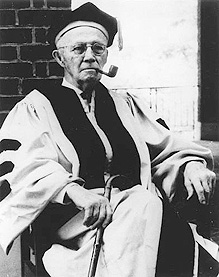 WILLIAM B. KOUWENHOVEN had a long and distinguished career at Hopkins spanning 60 years, with service on the faculties at both the schools of Engineering and Medicine. He is considered to be the grandfather of biomedical engineering.
WILLIAM B. KOUWENHOVEN had a long and distinguished career at Hopkins spanning 60 years, with service on the faculties at both the schools of Engineering and Medicine. He is considered to be the grandfather of biomedical engineering.
Dr. Kouwenhoven served as the second dean of the School of Engineering from 1938 to 1954. An electrical engineer, he was best known for his contributions to medicine, most notably the development of cardio-pulmonary resuscitation (CPR), and the invention of the electric heart defibrillator, for which he received a prestigious Lasker Award. Dr. Kouwenhoven was the first to be awarded an honorary doctor of medicine degree from Hopkins. He died in 1975.
University Professorship
University Professorships, University Distinguished Service Professorships, and University Distinguished Research Professorships are honorary titles awarded by the University, upon the recommendation of the President, to recognize exceptional achievements made by select members of the senior faculty
Henry Phipps Professorship in Psychiatry
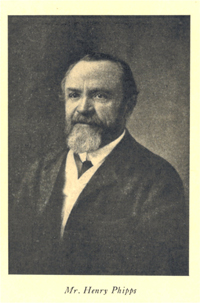 Hospital trustee HENRY PHIPPS, along with his wife, supported the establishment at Hopkins of the Henry Phipps Psychiatric Clinic, the nation’s first inpatient facility for the mentally ill constructed as part of an acute care hospital. In 1908 the Pittsburgh industrialist offered to fund construction of a clinic and to create a professorship in psychiatry. In 1913 the Phipps Clinic opened, and in 1923 Mr. and Mrs. Phipps gave a substantial gift to endow the clinic, stipulating that their gift was to be matched by other sources. In 1925 Adolf Meyer, psychiatrist-in-chief and chairman of the Department of Psychiatry, was designated as the first Henry Phipps Professor of Psychiatry. Dr. Meyer, who was originally trained in neurology, guided his department toward research in the biological foundations of mental disease and trained many leaders in academic psychiatry. The emergence of Hopkins as the preeminent location for the scientific study of psychiatry was due in large part to the leadership of Dr. Meyer and the generosity of Mr. Phipps, who died in 1930.
Hospital trustee HENRY PHIPPS, along with his wife, supported the establishment at Hopkins of the Henry Phipps Psychiatric Clinic, the nation’s first inpatient facility for the mentally ill constructed as part of an acute care hospital. In 1908 the Pittsburgh industrialist offered to fund construction of a clinic and to create a professorship in psychiatry. In 1913 the Phipps Clinic opened, and in 1923 Mr. and Mrs. Phipps gave a substantial gift to endow the clinic, stipulating that their gift was to be matched by other sources. In 1925 Adolf Meyer, psychiatrist-in-chief and chairman of the Department of Psychiatry, was designated as the first Henry Phipps Professor of Psychiatry. Dr. Meyer, who was originally trained in neurology, guided his department toward research in the biological foundations of mental disease and trained many leaders in academic psychiatry. The emergence of Hopkins as the preeminent location for the scientific study of psychiatry was due in large part to the leadership of Dr. Meyer and the generosity of Mr. Phipps, who died in 1930.
“We are very proud that the Phipps flame, lit in the name of psychiatric progress more than 100 years ago, continues to burn so brightly here and to shed so much light on our field, far and wide. ” – James B. Potash, MD, MPH
University Distinguished Professorship
University Professorships are honorary titles awarded by the University upon the recommendation of the President, to recognize exceptional achievements made by select members of the senior faculty.
A. Earl Walker, M.D. Professorship in Functional Neurosurgery
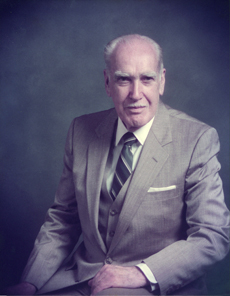 A. EARL WALKER, M.D., earned his medical degree in 1930 from the University of Alberta, completed his internship at Toronto Western Hospital and his residency in neurology/neurosurgery at the University of Chicago. One year after moving to the University of Iowa in 1934 to become an instructor in neurological surgery, he was selected as a Rockefeller Fellow and studied at Yale University, Amsterdam, and Brussels.
A. EARL WALKER, M.D., earned his medical degree in 1930 from the University of Alberta, completed his internship at Toronto Western Hospital and his residency in neurology/neurosurgery at the University of Chicago. One year after moving to the University of Iowa in 1934 to become an instructor in neurological surgery, he was selected as a Rockefeller Fellow and studied at Yale University, Amsterdam, and Brussels.
Dr. Walker returned to the University of Chicago in 1937 as an instructor in neurological surgery and was promoted to professor during his ten-year stay. From 1945-1946, he was appointed as a major in the Medical Corps of the United States Army and held the position of chief of neurological section at Cushing General Hospital in Massachusetts.
Dr. Walker came to Johns Hopkins in 1947 where he was both neurological surgeon-in-charge and professor of neurological surgery. He established the first neurosurgery residency program and emphasized research training during residency. It was his vision of the academic neurosurgeon as a researcher that kept neurosurgery within the National Institutes of Health (NIH) programs. Dr. Walker remained at Johns Hopkins until 1972 when he moved to the University of New Mexico as a research and teaching professor in the departments of neurology and surgery.
Dr. Walker’s contributions in research, teaching, and patient care had a tremendous influence on the field of neurosurgery.
University Professorship
Mary Elizabeth Garrett Chair in Arts and Sciences
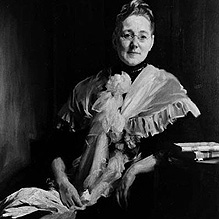 MARY ELIZABETH GARRETT headed the Women’s Medical Fund, a group of women from Baltimore and across the nation who raised the endowment necessary for the Hopkins School of Medicine to open in 1893. Miss Garrett herself provided the majority of the funds raised by the group.
MARY ELIZABETH GARRETT headed the Women’s Medical Fund, a group of women from Baltimore and across the nation who raised the endowment necessary for the Hopkins School of Medicine to open in 1893. Miss Garrett herself provided the majority of the funds raised by the group.
The endowment the women presented to the board of trustees was accompanied by a stipulation that the school aspire to the highest academic standards and admit women on the same terms as men. Among the members of the Hopkins board was her father, John W. Garrett, who was president of the B&O Railroad.
CHAIRHOLDER TO BE NAMED
John Dewey Chair
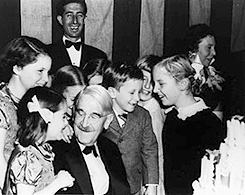 JOHN DEWEY, A&S 1883 (PhD), was one of the most influential philosophers, educators, and social critics of the 20th century. While studying at Johns Hopkins, Dewey was strongly influenced by G. Stanley Hall, the university’s first professor of psychology and one of the most prominent American experimental psychologists of his day. Dr. Dewey–who went on to teach at the University of Michigan, the University of Chicago, and finally Columbia University–developed a theory of inquiry called instrumentalism that had a profound impact on progressive education. Among his important works are Democracy and Education and The Public and its Problems. He was considered not only the foremost educator of his day, but also an important commentator on contemporary issues. Dr. Dewey was a frequent contributor to The New Republic and The Nation and was an advocate of women’s suffrage and the unionization of teachers.
JOHN DEWEY, A&S 1883 (PhD), was one of the most influential philosophers, educators, and social critics of the 20th century. While studying at Johns Hopkins, Dewey was strongly influenced by G. Stanley Hall, the university’s first professor of psychology and one of the most prominent American experimental psychologists of his day. Dr. Dewey–who went on to teach at the University of Michigan, the University of Chicago, and finally Columbia University–developed a theory of inquiry called instrumentalism that had a profound impact on progressive education. Among his important works are Democracy and Education and The Public and its Problems. He was considered not only the foremost educator of his day, but also an important commentator on contemporary issues. Dr. Dewey was a frequent contributor to The New Republic and The Nation and was an advocate of women’s suffrage and the unionization of teachers.
CHAIRHOLDER TO BE NAMED